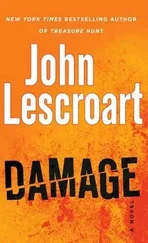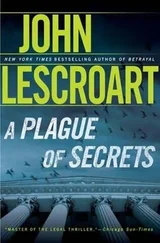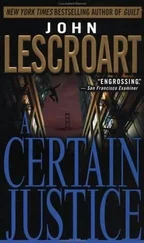The factory made everything from bullets and bombs to rifles and cannons. The next cavernous room was dedicated to working out the rough edges of a motorized armored car with mounted cannons, which Ponty thought would become a powerful new battlefield weapon. The preliminary sketches and models we saw were impressive, but it seemed to me that they still had a long way to go. Ponty hoped to complete a working model within six months, though, and Georges, after careful consideration, pronounced himself in agreement with that verdict. There were many other research rooms which Ponty could not show us. He apologized for this, and we both assured him we understood completely and had very much enjoyed the look around. Finally Maurice—he was “Maurice” by then—showed us to the door and bade us adieu.
“We don’t have visitors very often,” he said, “and, as you said, we don’t want them, but it’s been a pleasure showing you both around.” Maurice turned to me. “Jules, I’m glad that you decided to satisfy your curiosity.” With that, we shook hands and he disappeared back into the building.
Walking back to the car, Georges and I were thoughtful. It was now dusk. The factories would be closing within the hour, and I wanted to get back home.
“Life is sure full of surprises,” Georges remarked, elbowing me slightly.
I said nothing but thought instead of the questions I would have for Tania.
“Very impressive place,” Georges said, diplomatically changing the subject. “I wouldn’t be too worried about a breach of security if I were Maurice. That anteroom scared me to death, to say nothing of the boilers.”
“Yes,” I said. “Unless the Germans take St. Etienne—in which case we’ll have lost the war anyway—I’d say that factory is safe. Awfully modern building, isn’t it?”
“I loved it. I could have stayed all day.”
Something was bothering me, so I thought I’d better say it. “Yes, I noticed how acute your interest was. I thought you’d be bored in there, though I was glad you accompanied me.”
“Bored? Not at all. Fascinated, truly fascinated. Perhaps I’ve never mentioned it, Jules, but my initial love was architecture. I studied it for years in school, and only my father’s passionate belief that all art was somewhat effete—backed by his promise to withhold any financial aid to myself—persuaded me to enter the dynamic and exciting world of business.” He seemed genuinely bitter, the sarcasm heavy.
“I didn’t mean . . .” I began, sorry that I had touched a nerve.
“No. That’s all right. People, in the end, do what they truly want to do, I suppose.”
We talked on for a few more minutes before I dropped him off at a hotel. As usual, in spite of the large delivery today, he had calls to make for the remainder of the week, the weekend notwithstanding.
“Unfortunately, the need for my products keeps increasing. It may be good for business, but I find it difficult to rejoice in the fact.”
“Will you be able to make it by next Wednesday?” I asked.
“I assume so. I’ll leave a message if I’m delayed.”
“Fine. Until then.”
The drive home was long and uneventful. I usually don’t like to drive at night, and by the time I had reached the road to Valence, it was completely dark. My headlights flushed a few animals along the way, but otherwise I saw nothing and heard only the sound of the engine, which drowned out my soft humming of the “Marseillaise.”
7
After dinner—a simple coq au vin and a bottle of beaujolais—Tania and I sat in the kitchen with brandy. The living room still made us nervous, and Fritz said he didn’t mind the intrusion. So we sat on wooden chairs across the table from one another. It was a quiet night. The large stone fireplace crackled from time to time, and Fritz, cleaning up, moved easily about. When he’d finished, he turned down the lamps and left us alone. The room was a montage of pale yellow light and black shadows. Something, probably a mouse, scampered across the floor.
Tania was wearing a light blouse with a tan wraparound skirt that came to a few inches above her ankles. She was beautiful enough to get away with that kind of dress, though it would properly be considered fairly risqué. Her long hair fell across her face, and looking across at her I found it very hard to believe that she was beginning her fifth decade. I got up, came around the table, and kissed her.
“Are you feeling better?” I asked.
“Yes.”
“I went to see your friend Ponty today.”
Her shoulders stiffened a little. “What were you doing at the arms factory?”
“Georges had to deliver there, and I decided it would be a nice break to put off my appointment today and see this place you’ve talked about so much. It is a very impressive sight, though I wish they could do something about the smoke.”
“I know,” she said. “Isn’t the smell terrible?”
“Horrible. But I suppose when one works with sulfur, that’s impossible to avoid.”
We heard Fritz moving about behind us in his room. He usually did exercises and then read a bit before going to bed.
“How did you find Maurice?” she asked.
I described our tour, including the little episode at the door to the explosives room. Tania smiled and said that sounded just like Maurice. We sipped at our brandy, and the silence came back to surround us. There would never be a better time.
“Tania,” I began, then stopped, terrified. To me she was the most attractive woman in the world, and if I pressed on now I ran the risk of losing her. But I really had no choice—if I couldn’t ask, I had already lost her. “Why didn’t you tell me about Ponty’s proposal?”
Her shoulders sagged slightly as she put her snifter down. “Oh,” she said, “he told you about that?”
“It quite hurt me,” I said truthfully.
“Oh, Jules, I’m sorry.” She reached out across the table and covered my hand. “Maurice and I are only friends.”
“Obviously Maurice doesn’t feel the same way.”
“I know. I was very surprised.”
“I don’t understand why you wouldn’t have told me.”
She shrugged, squeezing my hand. “It didn’t matter. It had no effect on us. Why did you need to know?”
“Are we operating on a ‘need to know’ basis now?”
“What does that mean? Of course not. I just didn’t think it was so important, or appropriate. And really, Jules, it isn’t.”
“A marriage proposal isn’t important?”
“Not unless I’d have said yes, which I did not.”
I covered her hand with my own and stared into her guileless and beautiful face. “I’m afraid I’m uncomfortable with these secrets between us.”
She lowered her gaze and her voice. Her words seemed to have been wrung from her against her will, as though the necessity of having to admit it belied its own truth. “There are no secrets between us.”
Before I could respond, there was a crashing sound against the front door. I bolted up and ran to see what it had been. Outside, the night was inky black, and I could barely make out even the shadows of trees. Faintly, though, I heard what I took to be several pairs of retreating feet and some high-pitched giggling.
Tania had brought up a lantern and stood behind me. On the ground I could make out a large rock, which I bent over to pick up. There was a paper tied to it, and on the paper a crude drawing of a skull. I turned around and found Tania crying.
“Now, now,” I said, “it was simply a group of kids. You know they do this kind of thing often enough. And especially after word spread about Marcel’s murder in this house. If you listen you can still hear them giggling. Listen.”
Читать дальше












